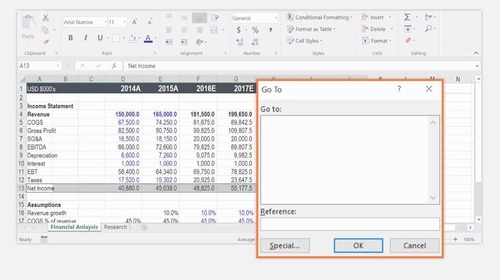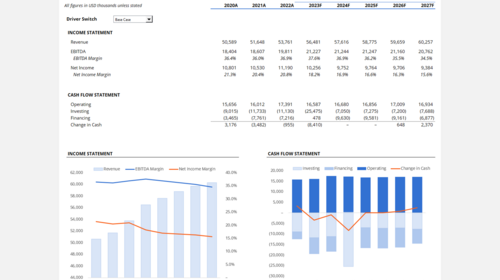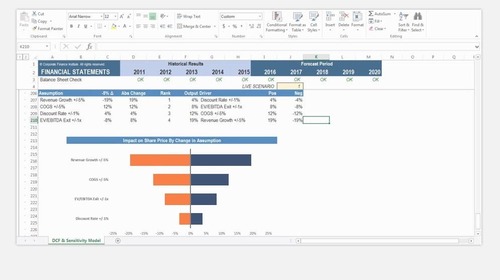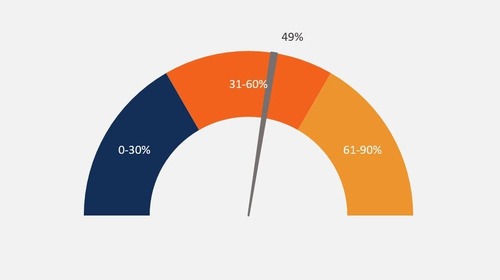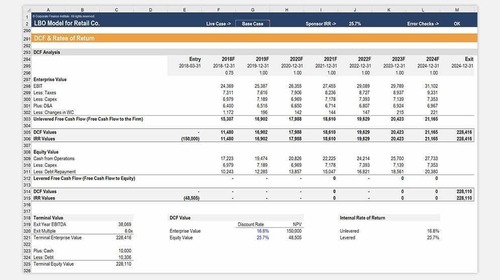- What is an Equity Rollover?
- Equity Rollovers are a Common Requirement in Private Equity Transactions
- How an Equity Rollover Benefits Sellers
- Potential Risks to the Seller
- What class of shares will constitute the rolled over equity?
- Does the minority shareholder have the right to hold their investment until exit?
- Be mindful of potential dilution
- Poor fit
- How Buyers Benefit from Equity Rollovers
- The Takeaway
Equity Rollover
What is an Equity Rollover?
Building a successful business can be one of life’s most satisfying achievements. Starting with nothing more than an idea and investing significant time, energy, and personal capital to create a thriving company makes for a thrilling ride. But for many owners, the moment comes when they start to consider an exit strategy. They want to enjoy the fruits of their labor.
A sale might result in a significant liquidity event, but what happens afterward? An entrepreneur accustomed to the single-minded pursuit of success might suffer from the loss of purpose. And what will happen to the company and its employees? Will the business continue to thrive?
Sure, we’re talking about champagne problems here. Nonetheless, these are valid concerns for someone who has worked hard to build a business. Happily, there’s an option available that lets business owners have their cake and eat it too. With an equity rollover, an entrepreneur can generate meaningful liquidity while remaining engaged in the business and benefiting from future growth.

Equity Rollovers are a Common Requirement in Private Equity Transactions
Currently, one of the most active segments of the private equity market is focused on founder-owned businesses valued at under $100 million. According to Pitchbook, in Q1 of 2023, 61.5% of deals in the global mergers and acquisitions market were concluded in this segment[1].
With private equity firms actively looking for businesses to purchase, there are increasing opportunities for entrepreneurs to sell. However, most PE firms stipulate an equity rollover as part of the transaction.
How does the rollover work?
Say that you own a company valued at $50 million. The company continues to experience substantial growth, but you believe that an infusion of additional resources and expertise could fuel even greater expansion. You also wouldn’t mind realizing substantial liquidity.
A private equity firm offers you $50 million but requires you to reinvest 20% of the proceeds and continue to manage the business. When the transaction closes, you take home $40 million, reinvest $10 million in the private equity group’s holding company, and own a 20% minority stake.
How an Equity Rollover Benefits Sellers
Entrepreneurs are dynamic people — not the sort to sell a company and devote the rest of their lives to playing golf, collecting pre-Columbian fertility idols, or pursuing other even more esoteric hobbies. They’ll look for new ways to invest that money.
What better option than to work with a group of sophisticated private equity investors and continue growing the business they founded? There are several benefits that can accrue to the seller who takes this option.
“Taking Chips off the Table” and Reducing Risk
The poker analogy is commonly used when discussing the benefits of an equity rollover, and it’s certainly apt. As mentioned above, the seller who reinvests “cashes in” and goes home with a big chunk of change. However, they remain involved in the business while mitigating downside risk and limiting personal exposure.
By staying on as a manager or consultant, they can continue to exercise significant influence over the direction and future of the business while potentially earning a handsome salary as well.
The Second Bite of the Apple
This is another commonly used phrase to describe one of the principal benefits of the equity rollover. A private equity firm invests in companies with the express goal of growing their value and exiting the investment, usually with a three-to-seven-year timeframe.
Indeed, private equity firms have a strong reputation for dramatically increasing the value of their investments. In their view, an equity rollover will help them do this by leaving an experienced manager in place who is incentivized to grow the business.
Returning to the earlier example, let’s look at our 20% minority shareholder and assume that over five years the private equity investor has turned the $50 million company into a $100 million company and exits the investment by selling it to a multinational corporation. The seller’s 20% minority stake has yielded them $20 million on a $10 million investment. This sale offers the “second bite” with an additional $10 million in profit.
Deferred Taxes
Another benefit to the seller accrues through the tax treatment of the transaction. The portion of sales proceeds that is reinvested is not taxable at the time of the sale. The amount rolled over will be tax deferred and taxed only when sold in the future.
Given the tax implications of a significant liquidity event, there may be considerable savings involved in deferring some of the tax liability to a future date.

Potential Risks to the Seller
An equity rollover can offer significant opportunity, but there are also pitfalls to consider. There are some vital questions to ask before rolling over equity.
What class of shares will constitute the rolled over equity?
Private equity firms typically offer different classes of shares for various investors and employees of portfolio companies. A seller should be careful to ensure that they will receive the highest class of shares to maintain their priority in case of liquidation.
Does the minority shareholder have the right to hold their investment until exit?
The real value of an equity rollover comes from that second bite of the apple when the company is sold again. A private equity buyer could attempt to insert a call option into the deal terms that would give them the opportunity to buy out the seller under certain circumstances. If the PE firm exercises that call option, it’s likely that the strike price would not yield a return equal to that the seller could enjoy at exit.
Be mindful of potential dilution
A shareholder’s ownership stake can be diluted should the company issue new equity. A seller should ensure that they are guaranteed the option to subscribe to any new issue on the same terms and at the same price being offered to others. This is necessary for the seller to maintain the same percentage ownership in the company.
Poor fit
It’s in the best interests of all involved to ensure a good fit between the buyer and seller if the seller is to stay on in some capacity following a rollover. Developing an understanding of fit and culture is a vital part of the pre-transaction due diligence process.
The seller and buyer must be able to work together productively to continue the company’s growth trajectory and ensure future success. Both parties need to be clear about expectations and how they will work together, particularly regarding the seller’s responsibilities and authority in setting strategy and making decisions. The seller’s quality of life and potential future returns are heavily dependent on getting the right fit between the parties.
How Buyers Benefit from Equity Rollovers
There are several factors that make equity rollovers particularly attractive to private equity firms.
First, by retaining the founder who built the successful business in the first place, they benefit from the founder’s experience, deep knowledge of the business, and relationship with current employees. Were the seller to depart the company, valuable expertise would be lost.
Employee attrition could also be a risk should key players opt to pursue new opportunities or follow the seller into a new venture. When the seller agrees to a rollover, it also communicates confidence in the future of the business. When buyer and seller interests are aligned the buyer is assured of continuity.
Finally, an equity rollover reduces the buyer’s initial cash outlay (in other words, the seller doesn’t necessarily reinvest cash… the seller would just receive the $40 million in the earlier example). The most significant downside for the buyer comes at the exit when they must give up part of their profit to the minority shareholder.
The Takeaway
Equity rollovers are a common requirement in private equity transactions and offer significant benefits to both private equity firms and the sellers of portfolio companies in which they invest.
For private equity firms, there is little downside to a rollover, provided they conduct adequate due diligence, while the gains can be substantial. While sellers face more potential pitfalls, they too can significantly increase their returns by capitalizing on the opportunities this popular mechanism affords.
As investment activity increases in the founder-owned segment of the M&A market, equity rollovers will continue to be a requirement in most private equity transactions.
Additional Resources
See all financial modeling resources
Article Sources
Create a free account to unlock this Template
Access and download collection of free Templates to help power your productivity and performance.
Already have an account? Log in
Supercharge your skills with Premium Templates
Take your learning and productivity to the next level with our Premium Templates.
Upgrading to a paid membership gives you access to our extensive collection of plug-and-play Templates designed to power your performance—as well as CFI's full course catalog and accredited Certification Programs.
Already have a Self-Study or Full-Immersion membership? Log in
Access Exclusive Templates
Gain unlimited access to more than 250 productivity Templates, CFI's full course catalog and accredited Certification Programs, hundreds of resources, expert reviews and support, the chance to work with real-world finance and research tools, and more.
Already have a Full-Immersion membership? Log in
